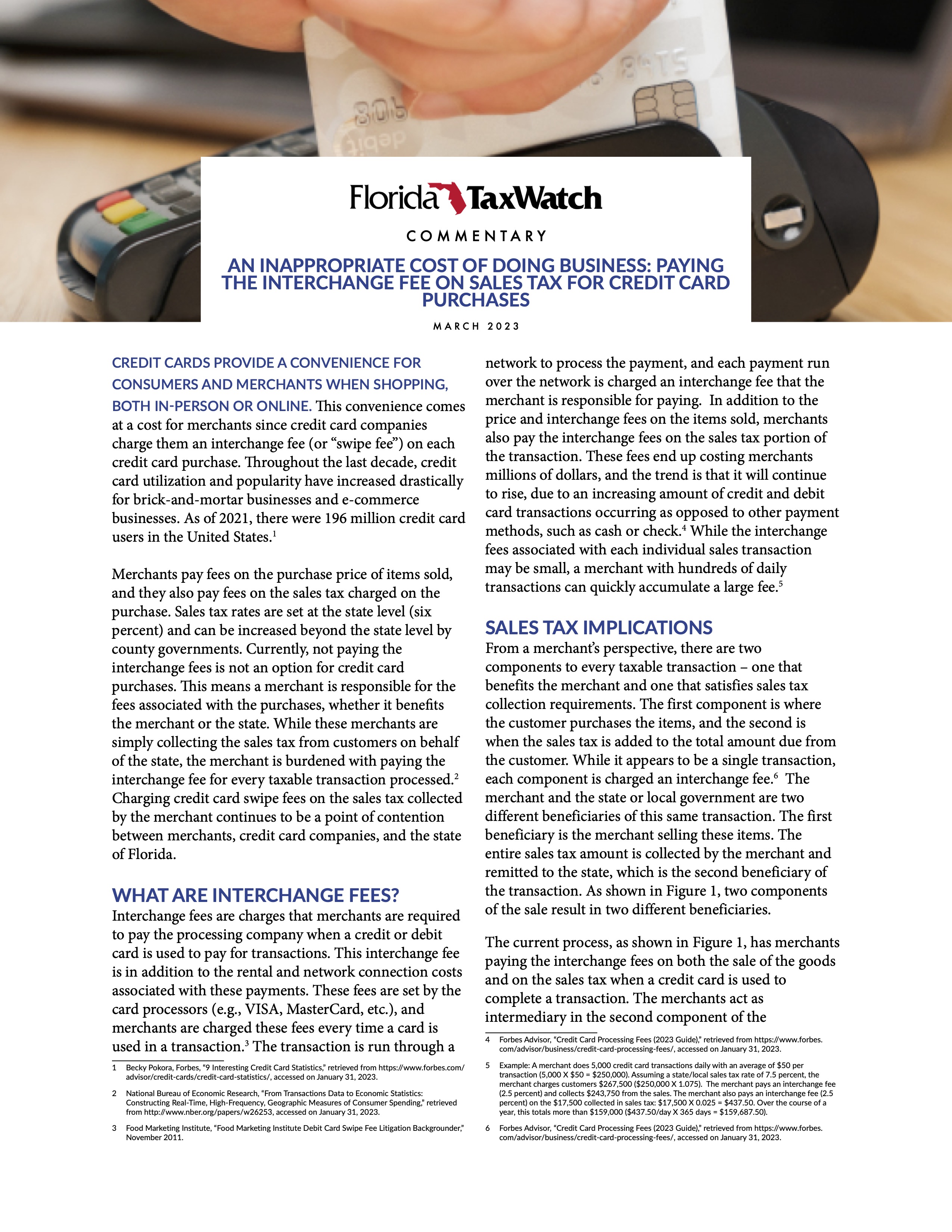Commentary: An Inappropriate Cost of Doing Business: Paying the Interchange Fee on Sales Tax for Credit Card Purchases

Credit cards provide a convenience for consumers and merchants when shopping, both in-person or online. This convenience comes at a cost for merchants since credit card companies charge them an interchange fee (or “swipe fee”) on each credit card purchase. Throughout the last decade, credit card utilization and popularity have increased drastically for brick-and-mortar businesses and e-commerce businesses. As of 2021, there were 196 million credit card users in the United States.
Merchants pay fees on the purchase price of items sold, and they also pay fees on the sales tax charged on the purchase. Sales tax rates are set at the state level (six percent) and can be increased beyond the state level by county governments. Currently, not paying the interchange fees is not an option for credit card purchases. This means a merchant is responsible for the fees associated with the purchases, whether it benefits the merchant or the state. While these merchants are simply collecting the sales tax from customers on behalf of the state, the merchant is burdened with paying the interchange fee for every taxable transaction processed. Charging credit card swipe fees on the sales tax collected by the merchant continues to be a point of contention between merchants, credit card companies, and the state of Florida.
There was a time when everyone paid for everyday purchases with either cash or a check. Credit card purchases were generally reserved for large, infrequent, or emergency purchases. Today, credit cards are accepted virtually everywhere and greatly expand consumer purchasing power worldwide. While credit and debit card purchases are convenient and secure, paying the interchange fees on the sales tax component of the transaction remains an issue for merchants and credit card companies.
The process for paying interchange fees to the credit card processors and collecting and remitting sales tax to the state is complex. In addition, there are other taxable situations that may need to be looked at to address sales and excise tax issues in the future. For example, consider merchants that sell motor fuels at the pump. The sales tax is incurred at the point of transfer to the merchant, not at the point of sale. Also, when a restaurant patron leaves a cash tip on the table, there is no interchange fee, and the employee can simply collect the tip. If, however, the patron includes the tip on a credit card, the restaurant owner (employer) is responsible for paying the interchange fee on the sales component of the transaction and for reimbursing the employee the full amount of the tip specified on the credit card receipt.
Florida’s Department of Revenue relies heavily on Florida merchants to collect and remit sales tax, including sales tax from credit and debit card transactions to the state. As such, Florida TaxWatch does not find it fair to penalize Florida merchants for doing something that the state needs them to do. Florida TaxWatch supports efforts by the Florida legislature to exclude the amount of sales tax listed separately on the sales slip from the amount on which the interchange fee is charged for electronic payment transactions.